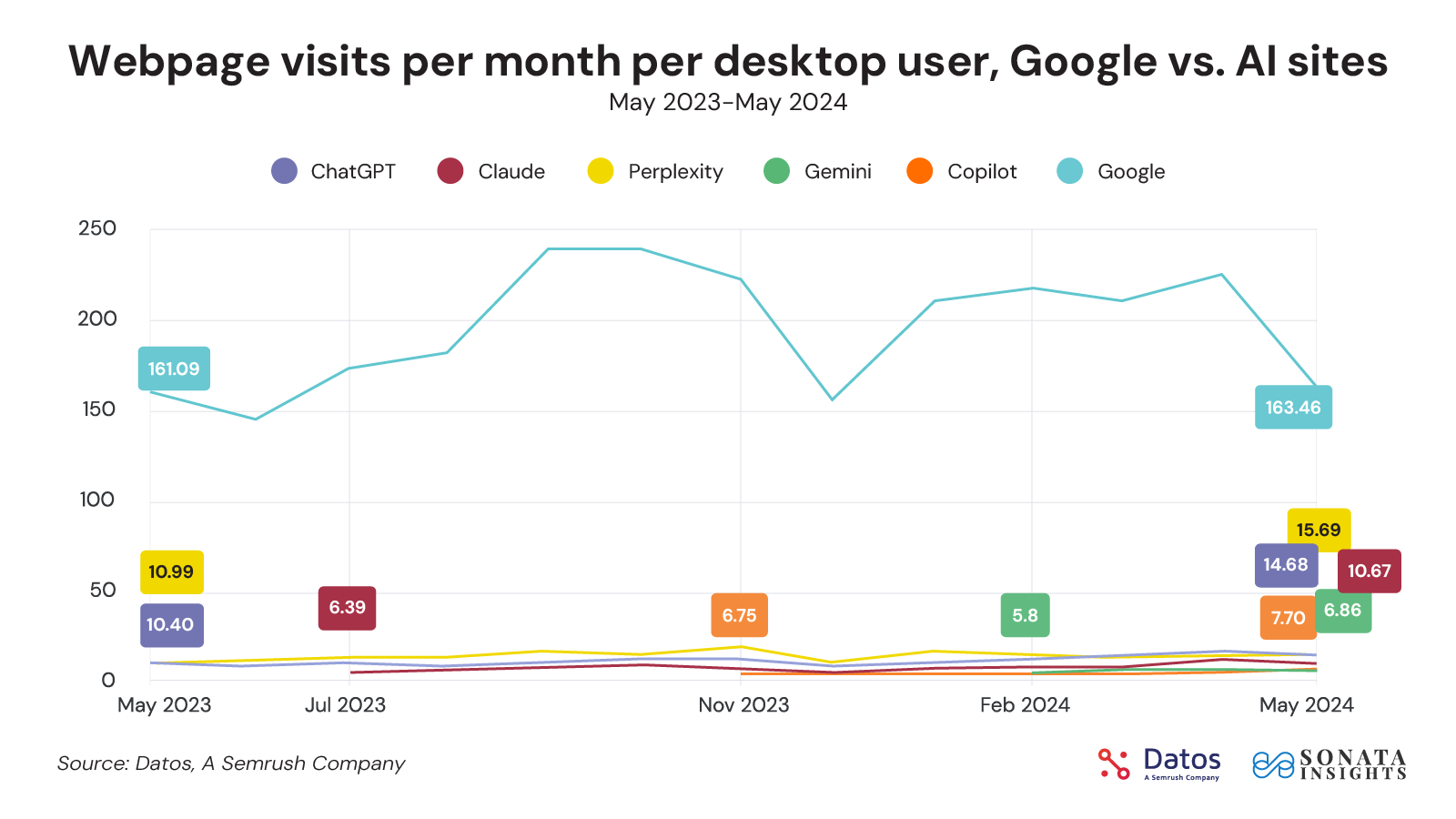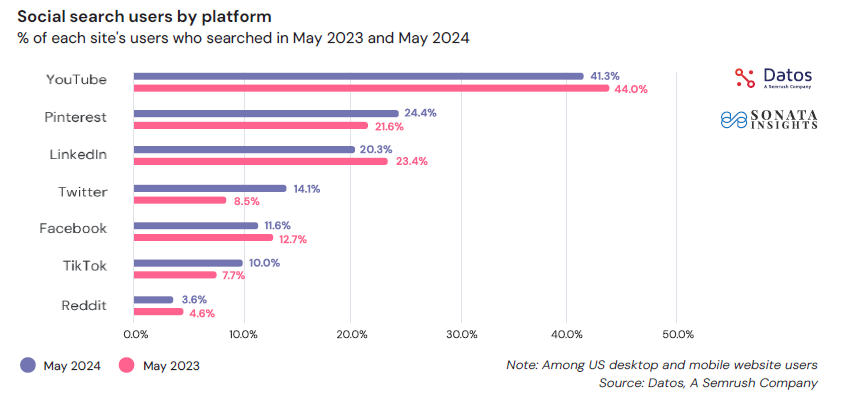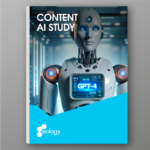
We have received top honors from Google, Microsoft and the BVDW. Find out what these are and how our customers benefit from them here. ... Continue reading
| 01 min |


| 29.08.2024 | 04 min |
In the last year, artificial intelligence (AI) has found its way into many areas and brought about major changes. Ever since ChatGPT was released, AI, LLM and other terms and tools have become indispensable. But how does this technological revolution affect the behaviour of search engine users? A recent study by Sonata Insights, based on data from Datos, analysed the search behaviour of consumers in the period from May 2023 to May 2024 and provided interesting insights.
The study clearly shows that Google remains the dominant search engine in the US. Despite the emergence of AI-supported platforms, Google has been able to maintain its leading position. The number of search queries per month and the search frequency per user have even increased. Google users carried out an average of 109.9 desktop searches per month, an increase of 10.4% compared to the previous year. The number of search queries among mobile users also remained stable. It remains to be seen how this will develop in 2024 and 2025. Many users tend to use AI-supported searches as a supplement.

The study shows that while AI-powered search platforms such as ChatGPT and Perplexity are gaining popularity, they are still a long way from seriously challenging the established search engines. Despite the increasing use of AI technologies, the majority of users remain loyal to traditional search engines. In May 2024, only 16.45% of traditional search engine users also used an AI platform. This shows that almost all of these users regularly use traditional search engines such as Google instead of relying exclusively on AI-supported alternatives.

A closer look at the development of Perplexity, one of the AI search engines, illustrates this dynamic. Perplexity recorded impressive growth last year, increasing its user base by a factor of 3.4. Despite this rapid growth, Perplexity remains a rather small player compared to Google.
In May 2024, the number of search queries on Google was still almost 2,400 times higher than on Perplexity. These figures emphasise that traditional search engines, especially Google, continue to play a dominant role, while AI-based search platforms such as Perplexity are still at the beginning of their development and have a long way to go to establish themselves as serious competitors.

Prominent AI platforms such as ChatGPT and the associated Copilot were not fully considered in this study. It remains to be seen how the market will develop as these platforms continue to grow in importance and whether they could pose a more serious “threat” to traditional search engines in the future. It is likely that users will continue to use different approaches to search – depending on the use case and search intent. Do you want a recipe? Are they looking for a new smartphone and want to compare prices? Do you want an answer to a question or are you looking for a weather report? Different search intentions can lead to different approaches.

Younger generations use social media much more frequently for search queries. Older generations still tend to search via traditional search engines such as Google. These different search habits could play an increasingly important role in the future, especially if social media platforms continue to expand and optimise their search functions. It is possible that the importance of social media as a search tool will increase in the coming years, which could lead to a shift in users’ search behaviour.
The study underlines that platforms such as Amazon and eBay continue to play a central role in consumer search behaviour. Despite the increasing integration of AI technologies, it is clear that users continue to rely heavily on traditional searches to find products and make purchasing decisions.
Search activity on these platforms remains high overall, even if there are slight fluctuations year-on-year. These fluctuations are often seasonal and are directly linked to periods of high sales, such as Prime Days on Amazon or the run-up to Christmas. During these periods, the number of search queries increases significantly as consumers are increasingly looking for offers, special products and gifts. Prime Days in July and October in particular, as well as the start of the Christmas shopping season in November for Black Friday, drive up search queries on Amazon significantly.
It is also interesting to note that this high search activity on e-commerce platforms indicates that consumers continue to use familiar search methods despite the availability of AI-powered search tools. For online retailers, this means that an optimised search function on their website remains crucial in order to meet users’ needs and ensure their competitiveness.
In the long term, the development of AI and its integration into e-commerce searches could bring about changes, but for now, traditional search remains the first choice.
The results of the study make it clear that although consumer search behaviour is changing due to AI, traditional search engines continue to play a central role. The use of SEO and SEA is therefore still relevant for companies and marketers. At the same time, however, the development of AI-supported platforms should be closely monitored and integrated into future strategies.
Although AI is on the rise, the long-established search engines remain the tool of choice for most users for the time being.

Here you can find the PDF of the study: Consumer Search Behavior: What’s Changing and What’s Not in the Age of AI?

Patricia Unfried is part of the Content Outreach team at eology. Your tasks include key account management, consulting and project management for international key clients. Besides her task as team lead for the area of quality assurance, the graduate in German and English writes expert articles on the latest SEO topics.

Would you like to learn more about content creation with artificial intelligence?